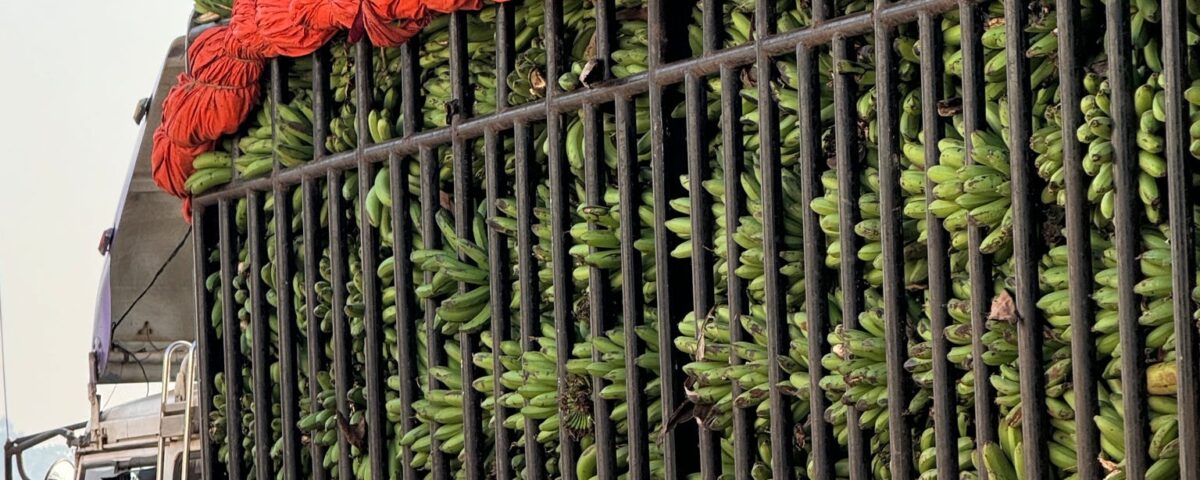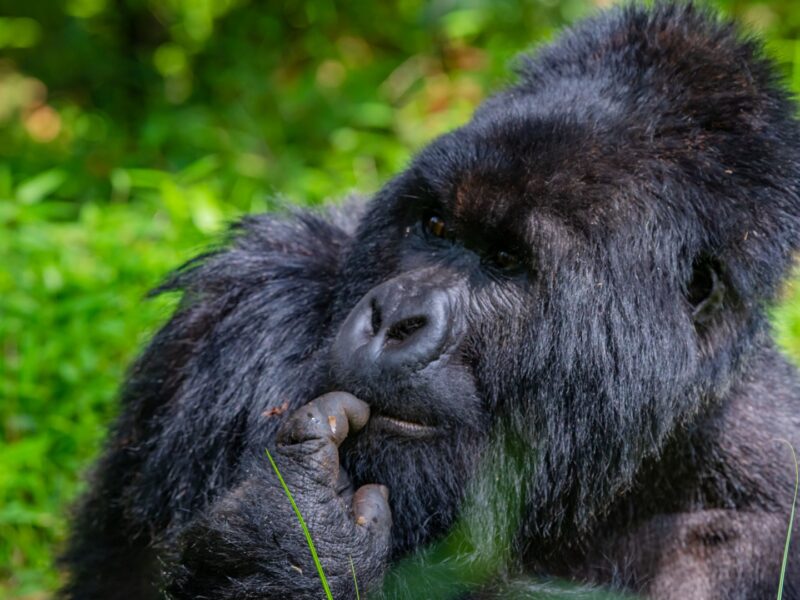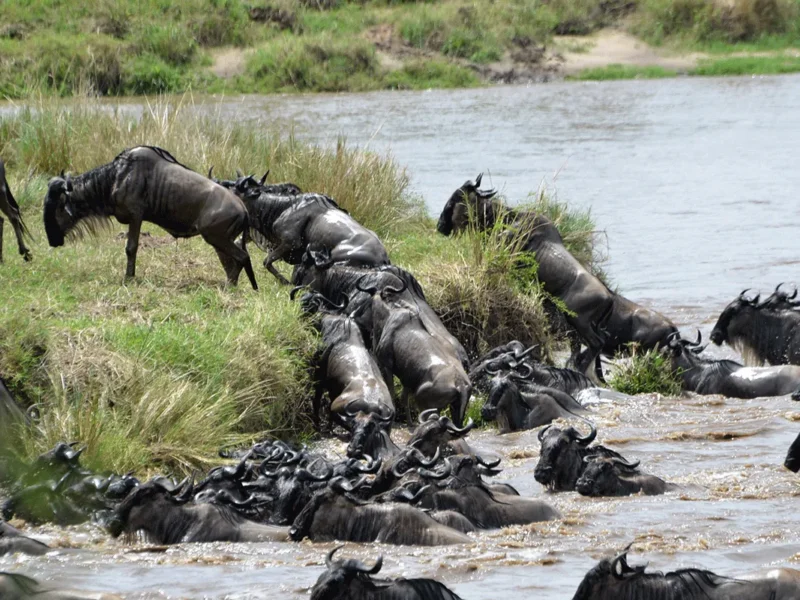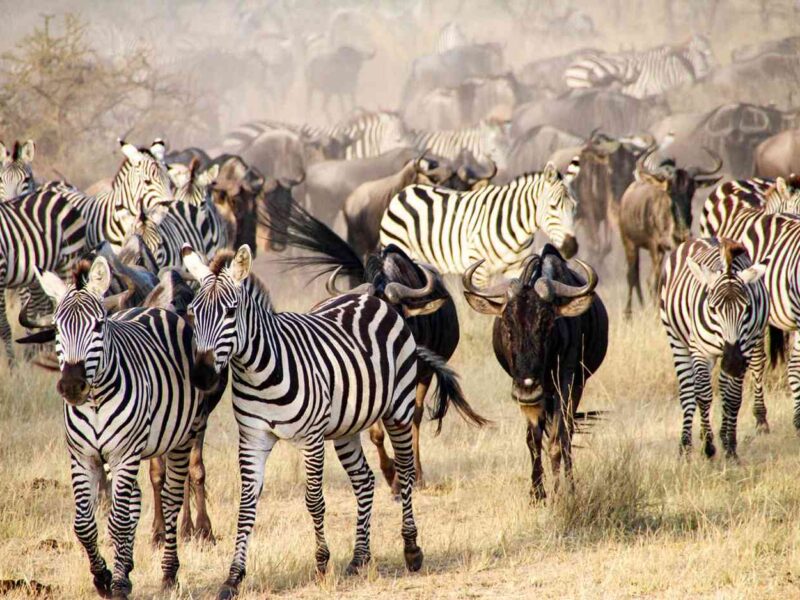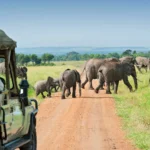
Morning Game Drive in Queen Elizabeth National Park
August 22, 2025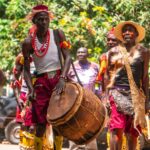
Entertainment on Ugandan Safari
August 23, 2025Tasting Local Food on Ugandan Safari
A Culinary and Cultural Journey
Why Food Defines the Ugandan Safari Experience
Tasting local food on a Ugandan Safari is one of the most authentic ways to connect with the country’s culture and traditions.
Travelers often focus on wildlife encounters, such as Uganda Gorilla Trekking or scenic drives through national parks, yet food completes the journey by offering an intimate introduction to Uganda’s people and heritage.
Uganda is not only blessed with breathtaking landscapes and rare wildlife but also with a rich culinary identity shaped by its fertile soils.
A Ugandan Safari becomes immersive when it combines game drives, Uganda Gorilla Safaris, and cultural food experiences.
For travellers seeking more than sightseeing, tasting local food on a Ugandan Safari creates unforgettable memories.
Uganda’s Culinary Diversity, More Than Just a Meal
Uganda’s food culture reflects the diversity of its regions and people.
Travelers who embark on Uganda Gorilla Safaris often begin their mornings with hearty breakfasts before heading into the rainforest.
During these journeys, they encounter a variety of staple dishes, including matooke, posho, millet bread, beans, and groundnut sauce.
The national favourite, matooke, consists of steamed green bananas served with sauces, a true symbol of Ugandan hospitality.
Travelers are never limited to local food alone; safari lodges offer continental menus with global options; all preferences are respected.
The real magic lies in tasting local food on a Ugandan Safari because it reflects the farm to table freshness that is rare in many parts of the world.
Vegetables, fruits, and spices come directly from community gardens, allowing visitors to enjoy vibrant Flavors that celebrate health and sustainability.
A question that many travellers ask is: Where to Stay on a Uganda Gorilla Safari? The answer often lies in lodges that blend adventure with cultural immersion.
Offering not only luxury but also opportunities to taste freshly prepared local meals.
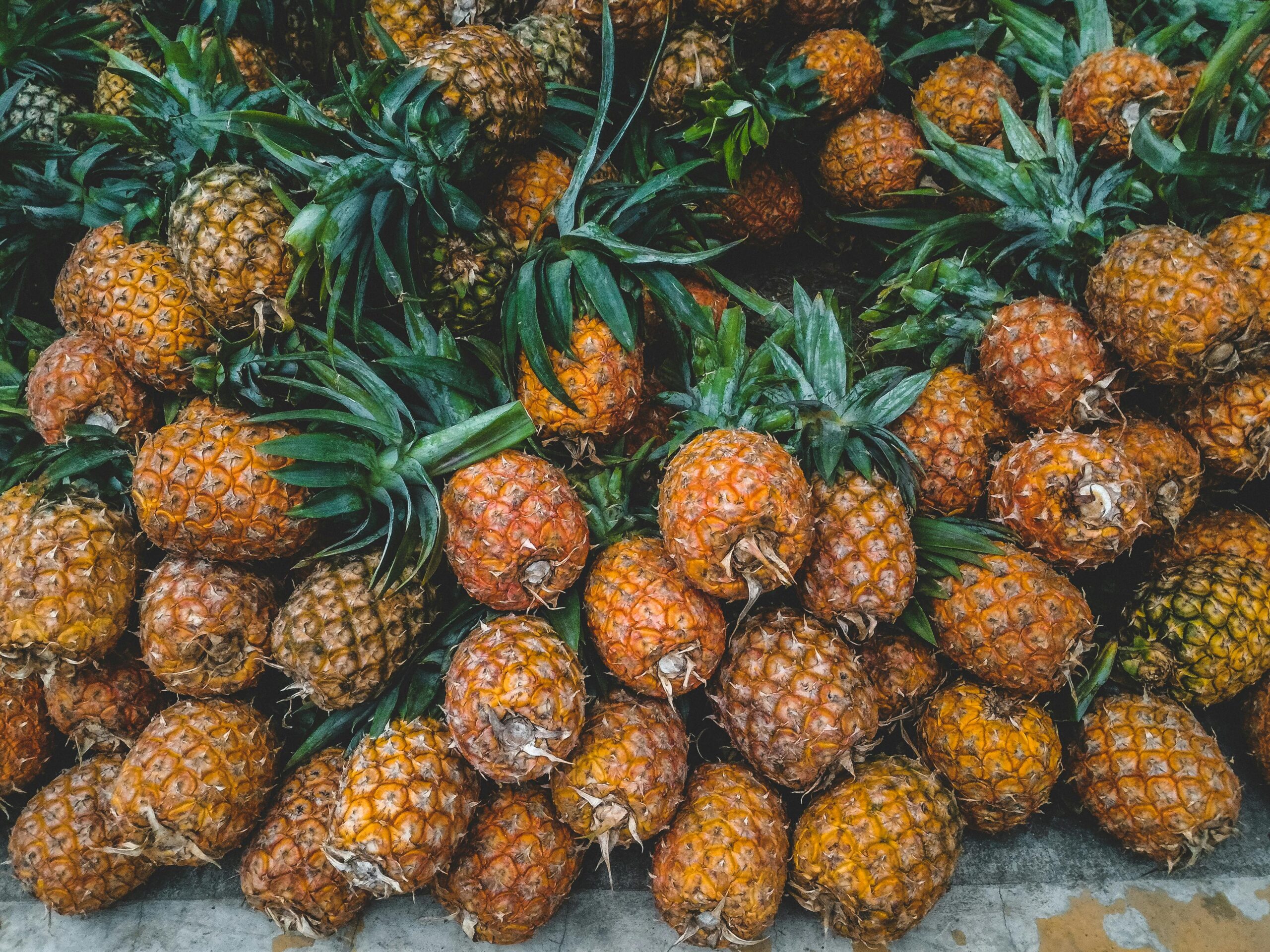
Tropical Pineapples
Culinary Adventures During Uganda Gorilla Trekking Safaris
Uganda Gorilla Trekking is one of Africa’s most extraordinary wildlife adventures, attracting travellers from Europe, America, and beyond.
While the trekking experience itself is breathtaking, food plays a major role in enhancing the journey.
Packed lunches are prepared for trekkers, often featuring local snacks such as chapati, samosas, fresh fruits, and roasted groundnuts.
This mix of international and local Flavors ensures energy throughout the trek.
At the end of the trek, lodges welcome guests with warm meals showcasing Uganda’s culinary identity.
Safari chefs prepare dishes that incorporate both international tastes and local specialties.
Tasting local food on a Ugandan Safari after a day of gorilla trekking provides more than nourishment; it creates a story travellers take back home.
For those asking What to Pack for a Uganda Gorilla Safari? including an adventurous palate is just as important as hiking boots and cameras.
Cultural performances around safari lodges often accompany dinner, offering an atmosphere where travellers enjoy traditional dances, storytelling, and drumming sessions alongside flavourful meals.
Tasting local food while enjoying such entertainment transforms dining into a cultural safari.
Cooking with Communities, From Garden to Table
One of the most rewarding experiences during a Ugandan Safari is participating in food preparation with local communities.
Many safari itineraries include cultural visits where travellers harvest bananas, dig potatoes, or pick fresh vegetables from gardens.
This connection with the land shows how Ugandans value freshness, sustainability, and togetherness.
Cooking with locals introduces travellers to traditional techniques such as steaming matooke in banana leaves and slow cooking groundnut sauce over firewood.
These experiences answer questions like When to Go for a Uganda Gorilla Safari? Because cultural activities and harvest seasons influence the availability of ingredients, timing matters.
During harvest periods, travellers enjoy plenty of fresh produce, making food experiences even richer.
Tasting local food on a Ugandan Safari becomes more personal when travellers not only eat but also participate in preparing it.
Safari lodges located near gorilla trekking destinations, such as Bwindi and Mgahinga, often organize such experiences.
These lodges not only provide comfortable accommodation but also act as bridges between travellers and surrounding communities.
By engaging in cooking sessions, visitors contribute directly to local economies and help preserve Uganda’s culinary heritage
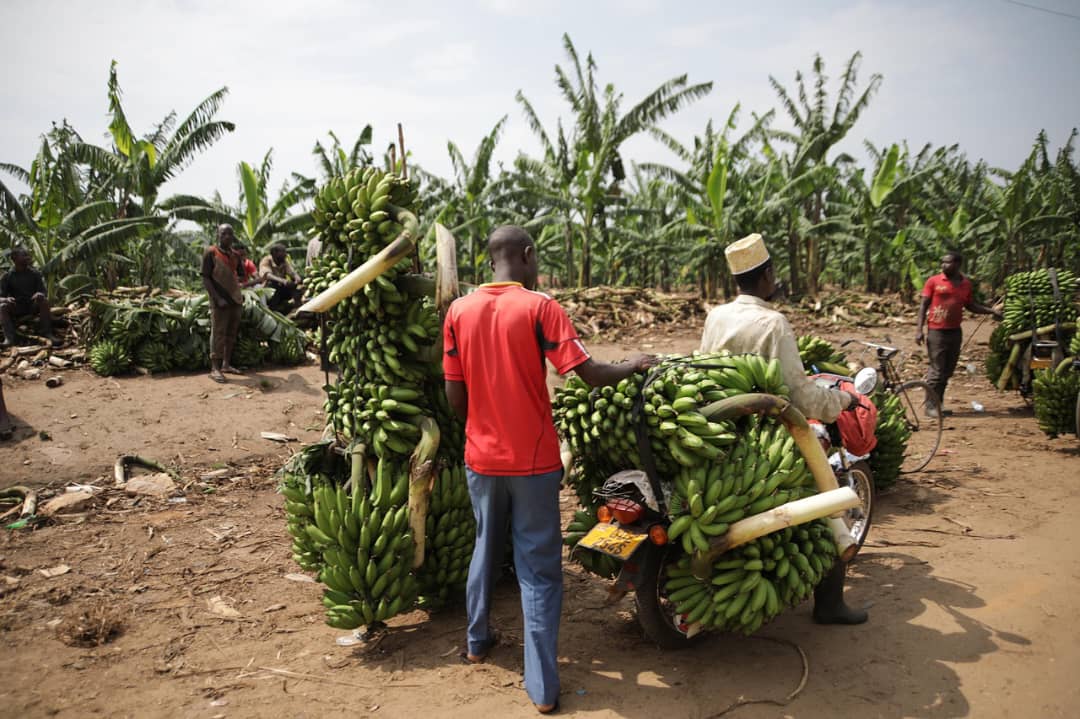
Men Loading Matooke on a BodaBoda
Cultural Experiences Around Safari Lodges
Food is closely tied to cultural life, and travellers on Uganda Gorilla Safaris soon realize that meals are part of a larger cultural journey.
Safari lodges frequently organize village visits where guests learn about basket weaving, storytelling, and music alongside food traditions.
Evening meals often feature local dishes paired with traditional performances, creating an environment that celebrates Uganda’s heritage.
Tasting local food on a Ugandan Safari in such settings highlights the deep relationship between people, land, and culture.
Guests who ask Where to Stay on a Uganda Gorilla Safari? should look for lodges that emphasize cultural engagement alongside wildlife encounters.
The combination of Uganda Gorilla Safari Lodges and food experiences allows travellers to live both the adventure and cultural sides of Uganda.
Cultural interactions extend beyond meals.
Guests may learn how to prepare banana beer, brew millet porridge, or roast coffee beans freshly picked from local gardens.
These activities strengthen connections between travellers and host communities, turning food into a channel for friendship and understanding.
Beyond Wildlife, Food as a Storytelling Medium
Many travellers embark on a Ugandan Safari primarily for wildlife, including the iconic Uganda Gorilla Trekking.
Yet food tells equally powerful stories, each dish represents centuries of tradition, adaptation, and creativity.
Tasting local food on a Ugandan Safari allows visitors to understand Uganda not just through its landscapes but also through its Flavors.
Food also answers deeper traveller concerns.
While some may worry about dietary restrictions, safari lodges and camps provide customized meals, balancing international cuisine with local favourites.
Travelers can comfortably enjoy gluten-free, vegetarian, or vegan options while still tasting local food that defines Uganda’s identity.
When travellers reflect on their safari, they remember the gorillas, the landscapes, and the meals that connected them to Uganda’s heart.
A Uganda Gorilla Safari thus becomes not just an adventure but also a culinary and cultural exploration that enriches the spirit.
Practical Insights for Travelers, Food and Safari Planning
Travelers often ask practical questions like What to Pack for a Uganda Gorilla Safari? Beyond hiking gear, open mindedness toward local food enhances the experience.
Bringing a reusable water bottle, energy snacks, and a curiosity for local markets ensures smooth adventures.
Another common question is When to Go for a Uganda Gorilla Safari? Food availability, cultural festivals, and harvest seasons influence timing.
June to September and December to February are peak seasons, offering excellent gorilla trekking conditions and vibrant food markets.
However, visiting in the rainy season allows travellers to experience freshly harvested crops and less crowded cultural encounters.
Tasting local food on a Ugandan Safari becomes more exciting when planned with cultural activities in mind.
Pairing gorilla trekking with village food tours, cooking sessions, and market visits ensures that travellers enjoy both wildlife and cultural richness.
Conclusion, Food as the Soul of the Ugandan Safari
Tasting local food on a Ugandan Safari is not just about satisfying hunger but about creating unforgettable memories that define the journey.
Travelers who combine Uganda Gorilla Trekking, wildlife safaris, and cultural food experiences discover the true essence of Uganda.
The diversity of meals, from matooke to millet bread, reflects the country’s heritage, while the opportunity to cook with locals strengthens bonds between cultures.
For anyone asking Where to Stay on a Uganda Gorilla Safari? the answer lies in lodges that embrace both comfort and cultural immersion.
For those wondering What to Pack for a Uganda Gorilla Safari? curiosity and a willingness to taste new Flavors are essential.
For travellers planning Uganda Gorilla Trekking from any part of the world, the adventure begins not only in the forests but also on the plate.
Tasting local food on a Ugandan Safari transforms an ordinary trip into an extraordinary cultural journey.
Ngeye Tours and Travel invites every adventurer to embrace this holistic safari experience, where wildlife, culture, and food come together to tell Uganda’s story.


